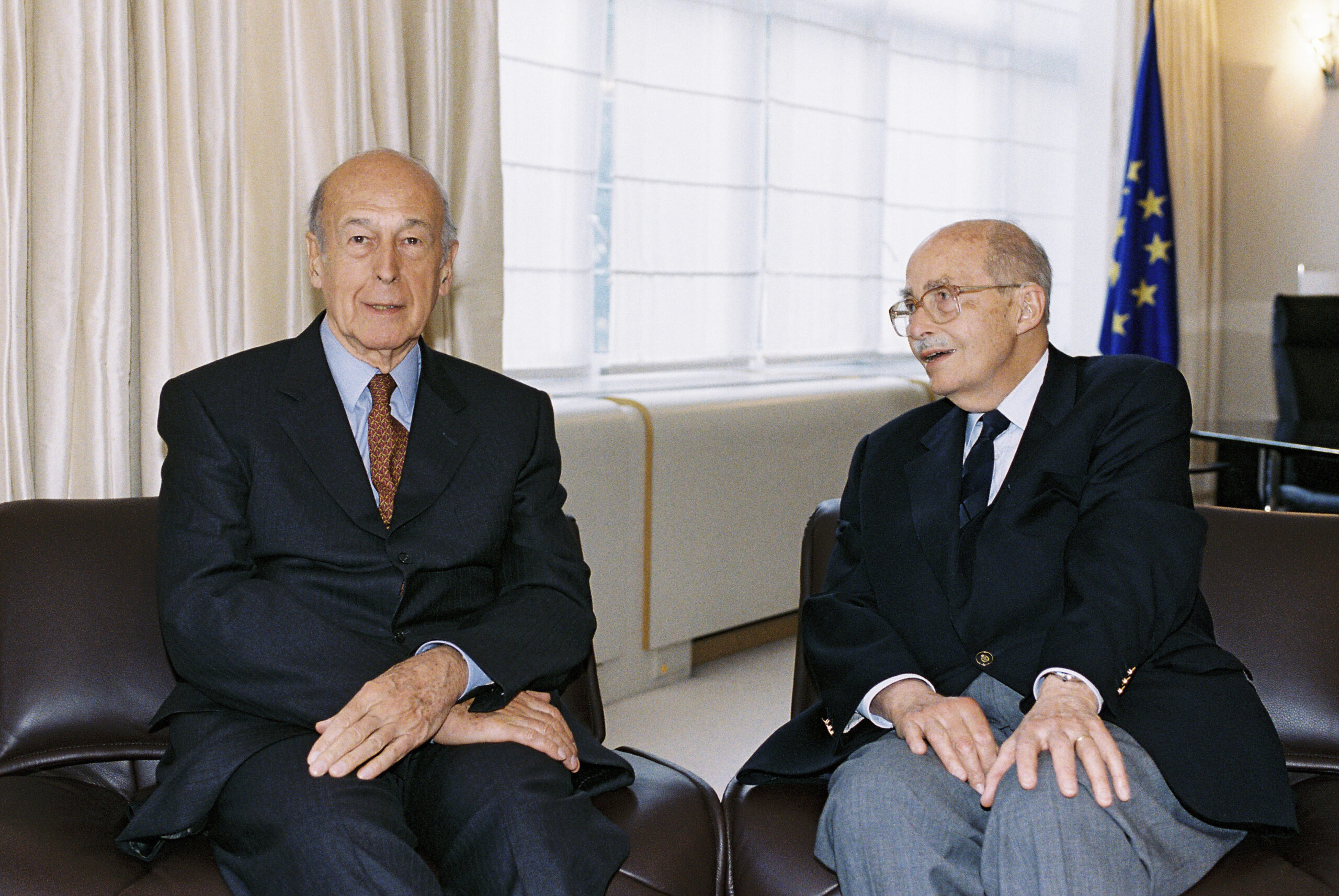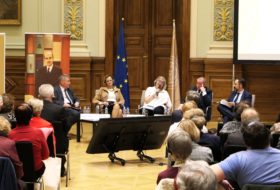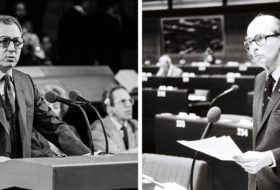The politician, who died on December 2, 2020, at the age of 94, maintained a friendly relationship with Otto von Habsburg, the namesake of our Foundation. The two defining personalities of 20th century European history made each other acquaintances through the Pan-European Movement.
Count Richard Coudenhove-Kalergi launched the Pan-European Movement in 1923, to which Otto von Habsburg joined in 1936, then became vice-president (1957) and president (1973) of the movement. Valéry Giscard d’Estaing familiarized with the movement through his father besides his own European interest. Edmond Giscard d’Estaing was known as an economist and banker believing in the creation of the common market of the Old Continent from the 1920s and fostering a companionship with Count Coudenhove-Kalergi. The friendship between Valéry Giscard d’Estaing and Otto von Habsburg was based on their common passion: their commitment to European integration. The correspondence between the two of them, in which a recurring theme is the past, present and future of Europe is a manifestation of their common belief.
On 27 May 1974, Otto von Habsburg, President of the Pan-European Union, congratulated Valéry Giscard d’Estaing on his election as President: “The International Pan-European Movement welcomes your election as President as a guarantee that France will remain free and European. We are convinced that you intend to continue to support the relaunch of a political Europe, which is an urgent and essential circumstance for the survival of our peoples and civilization.”
On May 28, 1974, Edmond Giscard d’Estaing thanked Otto for the telegram sent to his son from Vienna with a friendly, handwritten letter. Especially he respected Otto von Habsburg. In the summer of 1970 as then-president of the Moral and Political Science Section of the French Academy he informed Otto that he had been elected to the Institut de France, which meant that his name became “immortal”. The former Crown Prince had excellent relations with the whole family, later corresponded with Valéry Giscard d’Estaing’s son as well.
He was received by the French head of state several times, although they rather kept in touch through the elder Giscard d’Estaing during this period. In 1975, Otto helped Edmond to find a suitable Austrian twin city for Saint Saturnin, a French village close to the d’Estaing family’s ancient nest. Edmond undertook to write an afterword for the volume of interviews with Queen Zita. A few months later, Otto as President of the Pan-European Union asked the French President’s father to take on the jury membership of the Coudenhove-Kalergi Prize. He argued in the hope of an affirmative response that “we thought of you as an old friend of Coudenhove-Kalergi, but also as a confident European from the core.” The request was welcomed by the addressee, who even chaired the committee for many years. Because Otto had often spoken in support of the French president’s policies in his lectures, in his letter of September 29, 1975, he reported to Edmond that he was accused in some circles “of being a giscardist agent”. He added, “I’m proud to be called that.”
The two politicians remained in contact until Otto’s death in 2011. The fact that the former Crown Prince worked as a Member of the European Parliament from 1979 to 1999 further strengthened their friendship. They met regularly, often exchanging ideas in letters, sending books to each other. In July 2002, Otto sent a long letter to Valéry Giscard d’Estaing asking him to mediate between Czechoslovakia and Germany and between Czechoslovakia and Hungary in order to invalidate the “outrageous” Beneš decrees. The four-pages long argumentation did not impress his French friend. Although Valéry Giscard d’Estaing acknowledged that the regulations enforced by the Czech politician had indeed caused a “deep and painful wound” and that their repeal would be desirable in any case, he did not see a French intervention possible, rather saw a cure in European integration.
Otto congratulated Valéry Giscard d’Estaing in December 2002 when he learned that the latter had been awarded the Charlemagne Prize in Aachen. In his letter he expressed his joy that the Prize was received by a worthy person, thus “thereby the prestige of the award is strengthened”. A year later, he sent another congratulatory message when his friend was elected a member of the French Academy, since he was unable to attend the inauguration ceremony on 16 January 2004 because he was in Budapest.
Their friendship is shown by the fact that Valéry Giscard d’Estaing was a guest of honour at Otto’s 90th birthday celebration in Vienna on November 20, 2002. The former French president once again stressed that the celebrant is a “great friend and a European”. According to some recollections, he often called him “Otto von Europa.”
We would like to commemorate the deceased former French President with remembering their forgotten friendship with Otto von Habsburg. At the same time, we would like to draw attention to the cornerstone of their friendship: the European commitment.
Gergely Fejérdy


